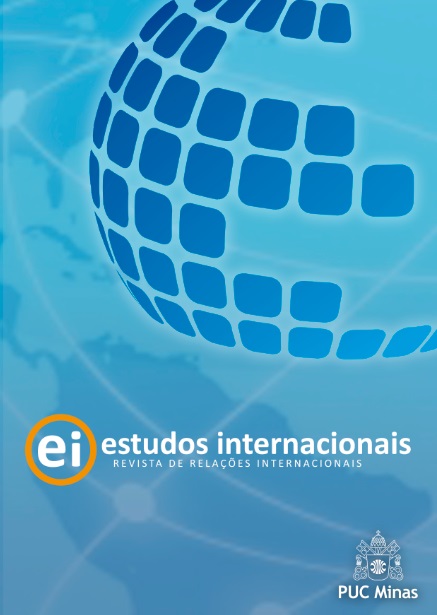A A política do Banco Mundial no Brasil (1990-2002)
DOI:
https://doi.org/10.5752/P.2317-773X.2024v12n2p91-107Keywords:
Banco Mundial, Brasil, EstadoAbstract
The aim of this article is to present a characterization and interpretation of the World Bank’s policy in Brazil during the period 1990-2002. We detail the characteristics presented by the political orientation of the agency towards the country and also the main features that assumed its financial assistance during that period. In methodological terms, the work relies on documentary analysis and analysis of the agency’s financial assistance projects. We found that the Bank supported various policies aimed at the poor, such as education, health and infrastructure, and at the same time supported structural reforms. We also find that the agency’s assistance was focused on the north-eastern region of the country and that towards the middle of the decade that same assistance sought to be concentrated at the state level at the expense of the federal state. We interpret the policy of the organization as supporting the state in the face of the imperatives presented to it at that stage: of accumulation -centrally, the restructuring of the domestic market as a way out of the post-war mode of accumulation- and of domination-centrally, the legitimization of one’s own state in the face of the growing contradictions that the restructuring entailed-.
Downloads
References
ALMEIDA, P. O Brasil e o FMI desde Bretton Woods: 70 anos de história, Revista direito Gv,
São paulo, 10 (2), 469-496, 2014.
ANDERSON, P. Brasil: una excepción 1964-2019. Buenos Aires: Akal. 2020.
ARAÚJO MELLO, H. O Banco Mundial e a reforma educacional no Brasil: a convergência de
agendas e o papel dos intelectuais em Mendes Pereira, J. y Pronko, M. (org.) A demolição de
direitos. Um exame das politicas do Banco Mundial para a Educação e a Saúde (1980-2013).
Rio de Janeiro: Escola Politécnica de Saúde Joaquim Venâncio. 153-182, 2014.
BABB, S. Behind the development banks. Washington politics, world poverty, and the
wealth of nations, The University of Chicago Press, Ltd, 2009.
BARBOSA, N. Y PEREIRA DE SOUZA, J. A inflexão do governo lula: política econômica, crescimento
e distribuição de renda, em Sader, E. y Garcia, M. (Orgs.) Brasil: entre o Passado e o
Futuro São Paulo: Fundação Perseu Abramo e Editora Boitempo, 2010, 1-42.
BARNETT, M. Y FINNEMORE, M. The Politics, Power, and Pathologies of International Organizations.
International Organization, vol. 53 (4), 699-732, 1999.
BAUMANN, R. Brasil en los años noventa: una economía en transición, Revista de la CEPAL
Nro.73., 150-172, 2001.
BONNET, A. ¿Qué es el estado capitalista? La derivación del estado revisitada. In: GARCÍA
VELA, A., MATAMOROS PONCE, F., GARZA ZEPEDA, M.; HERNÁNDEZ LARA, O.
(Coord.) Estado, capitalismo y subjetividad. Dignidad y esperanza en configuraciones revolucionarias
del sujeto rebelde, Ediciones del Lirio. 2019.
BONNET, A.; PIVA, A. Estado y Capital. El debate alemán sobre la derivación del estado.
Buenos Aires: Ediciones Herramienta, 2017.
Downloads
Published
How to Cite
Issue
Section
License
Copyright (c) 2025 Estudos Internacionais: International Relations Journal of PUC Minas

This work is licensed under a Creative Commons Attribution 4.0 International License.
Authors who publish with this journal agree to the following terms:
a.Authors retain copyright and grant the journal right of first publication with the work simultaneously licensed under a Creative Commons Attribution License that allows others to share the work with an acknowledgement of the work's authorship and initial publication in this journal
b.Authors are able to enter into separate, additional contractual arrangements for the non-exclusive distribution of the journal's published version of the work (e.g., post it to an institutional repository or publish it in a book), with an acknowledgement of its initial publication in this journal.
c.Authors are permitted and encouraged to post their work online (e.g., in institutional repositories or on their website) prior to and during the submission process, as it can lead to productive exchanges, as well as earlier and greater citation of published work (See The Effect of Open Access).
![]()



